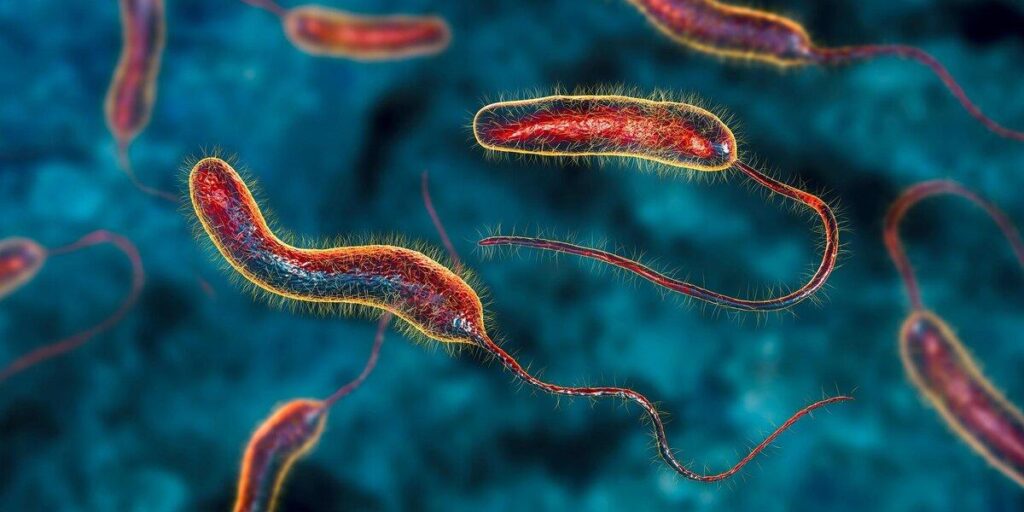Ghana is ramping up efforts to combat a recent surge in cholera cases by strengthening its disease surveillance systems and upgrading healthcare infrastructure, with support from Gavi, the Vaccine Alliance. The West African nation faces recurring outbreaks that strain its public health resources, prompting authorities to seek enhanced strategies to detect, prevent, and respond to the deadly waterborne disease. This coordinated initiative aims to bolster Ghana’s capacity to manage cholera more effectively and safeguard vulnerable communities from future epidemics.
Ghana Strengthens Cholera Surveillance to Curb Outbreaks
In a decisive move to tackle recurrent cholera outbreaks, Ghana is ramping up its surveillance capabilities and investing in critical water and sanitation infrastructure. Supported by Gavi, the Vaccine Alliance, the initiative aims to enhance real-time data collection and monitoring in vulnerable regions. Health officials have deployed cutting-edge digital tools and trained local health workers to ensure faster detection and response to potential cholera cases, thereby curbing transmission before it escalates.
Alongside surveillance enhancements, significant efforts are underway to improve access to clean water and proper sanitation systems, particularly in high-risk communities. The comprehensive approach includes:
- Installation of water purification units in cholera-prone districts
- Upgrading drainage and sewage facilities in urban and peri-urban areas
- Community engagement campaigns promoting hygiene practices
| Key Focus Area | Status | Expected Impact |
|---|---|---|
| Digital Surveillance Systems | 75% deployed | Faster outbreak detection |
| Clean Water Access | 60% improvement | Reduction in contamination |
| Sanitation Infrastructure | 40% upgraded | Lower transmission rates |
Upgrading Water and Sanitation Infrastructure Key to Long-Term Cholera Control
Ghana’s battle against cholera is evolving with a renewed focus on strengthening its water and sanitation systems, essential for sustainable disease prevention. Efforts are underway to expand access to clean water sources and improve sewage management, particularly in high-risk regions prone to outbreaks. The government, in partnership with international agencies, is investing in durable infrastructure that can withstand seasonal challenges, reducing the likelihood of contamination and transmission.
Key initiatives include:
- Upgrading urban water treatment plants to increase safe water supply.
- Expanding latrine coverage in underserved rural communities.
- Community-led sanitation education to encourage hygienic practices.
| Infrastructure Component | Status | Target Completion |
|---|---|---|
| Water Treatment Facilities | 40% Upgraded | 2025 |
| Public Latrine Construction | 30% Complete | 2024 |
| Sanitation Awareness Campaigns | Ongoing | N/A |
These measures are backed by data-driven surveillance that pinpoints hotspots where outbreaks frequently occur, allowing targeted interventions. By closing the gap in basic services and educating communities simultaneously, Ghana aims for a durable shield against future cholera crises.
Gavi Supports Enhanced Vaccination Campaigns and Community Engagement Efforts
In a bold move to curb the recurring cholera outbreaks, Gavi, the Vaccine Alliance, is intensifying its support for Ghana by rolling out enhanced vaccination campaigns. These efforts aim to target the most vulnerable communities with improved access to oral cholera vaccines, ensuring higher coverage in outbreak-prone regions. The coordinated push integrates mobile vaccination units, local health workers’ training, and robust cold chain management to guarantee vaccine efficacy despite logistical challenges.
Key elements of Gavi’s support include:
- Deployment of community health volunteers to increase vaccine acceptance and education
- Investment in state-of-the-art surveillance systems for real-time outbreak tracking
- Collaboration with local leaders to bolster trust and engagement
- Strengthened infrastructure for water sanitation alongside vaccination efforts
| Support Area | Focus | Expected Impact |
|---|---|---|
| Vaccination Delivery | Mobile units and cold chain | Increased coverage and vaccine potency |
| Community Engagement | Health volunteer training | Higher public trust and uptake |
| Surveillance | Real-time data systems | Faster outbreak response |
| Sanitation Infrastructure | Water quality improvements | Reduced transmission risk |
Insights and Conclusions
As Ghana grapples with the ongoing cholera outbreak, the government’s renewed focus on enhancing disease surveillance and upgrading water and sanitation infrastructure marks a critical step toward controlling the epidemic. Supported by Gavi, the Vaccine Alliance, these efforts aim not only to curb immediate transmission but also to build long-term resilience against future outbreaks. With strengthened health systems and improved access to vaccines, Ghana is striving to turn the tide against cholera and safeguard the well-being of its population.
